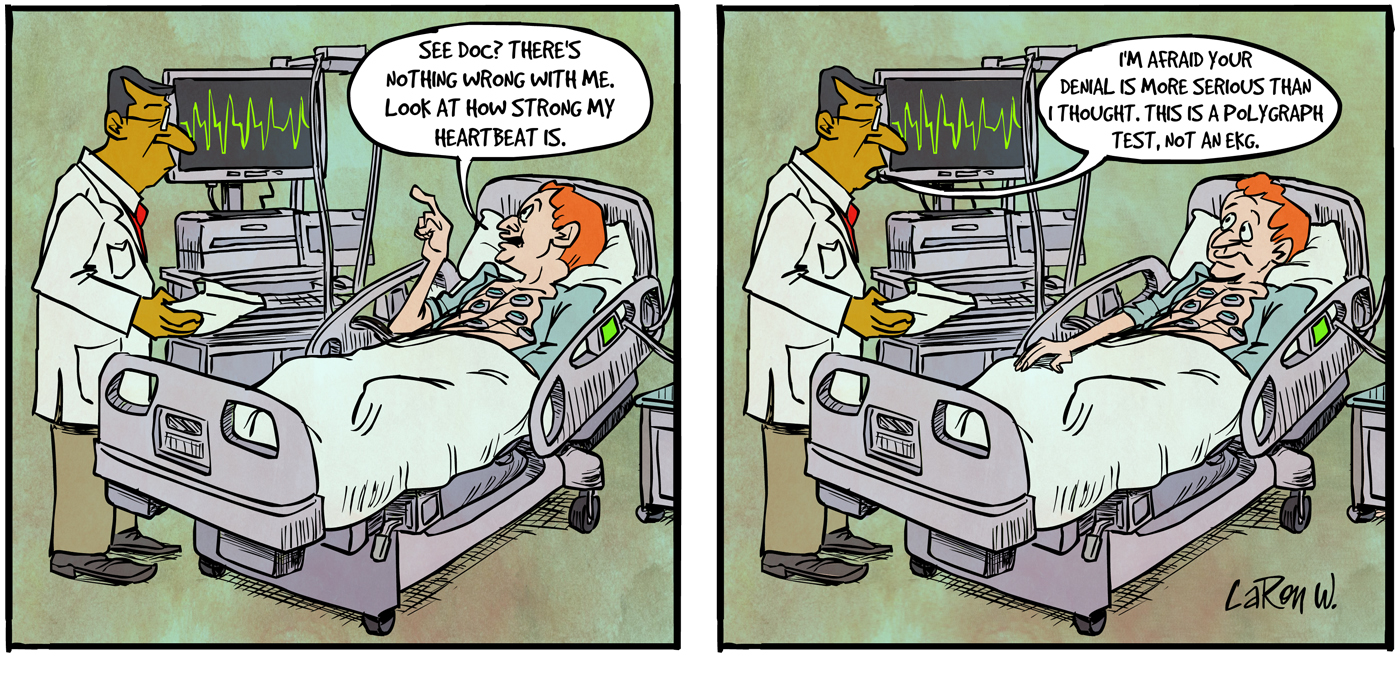When I came into SA in 2009, I balked at the part of the sobriety definition that says “no form of sex with self or with persons other than the spouse” (SA 191-192). I had come from a secular upbringing, and I lived through three divorces of my parents. First they divorced each other, then each of them married someone else, and then each divorced again. Marriage was not for me. I cohabited for six years with my first girlfriend, then another year with my second girlfriend, and it never once crossed my mind to ask either of them to marry me.
In 2009, when I was 35 years old, I thought I deserved more than ever to have a girlfriend and become a father. I was in another S-fellowship here in the Netherlands at the time, and I tried my very best to be sober. I knew of SA. I thought that SA might be good for others, but not for me.
As the White Book says, “Our rationalizations are ingenious. We tried masturbation only, or having ‘meaningful relationships’ only, or having affairs where we ‘truly cared’ for the other person. Or, we resorted only to one-nighters, prostitutes, or anonymous sex ‘so nobody got hurt’” (191). I had tried all of these rationalizations, and I knew in my heart that the result would always be the same: more acting out. Then a short relationship ended in a big frustration, and I was alone again. I was drunk on porn and masturbation, and nothing seemed to work for me. But I noticed that those “crazy” people whom I knew in SA were staying sober. So even though SA’s sobriety definition was tough for me to swallow, I had become really sick and tired of being sick and tired. Reluctantly I gave up my “last hope” and decided to surrender to SA’s sobriety definition.
I was quite surprised to find that after some days I was still sober, and I had not been fighting for it. In the next year I found many more “weapons” that I had been holding against the world, such as my continuous resentments against my father, my friends, and my ex-girlfriends. I was able to put them down also, one by one. I had to let go of so many things, but for the first time I felt really happy with myself and with other people. Living a single, unmarried life wasn’t so bad after all.
After two-and-a-half years of sobriety, my sponsor suggested I start dating. Me? I felt comfortable being “unavailable.” But now I had to get out of my comfort zone. In the next two years I dated 10 different women, and my sponsor’s support and directions were indispensable. Then I met the tenth woman, and my Higher Power confirmed over and over again that I should continue with her. I proposed after four months.
In the beginning, I kept extremely strict boundaries with my fiancée in order to assure sober dating, but after a while I began to relax a bit. As we drew closer to each other, I started feeling the temptations. One night my girlfriend tried to kiss me when we said goodbye. I was shocked. I turned my head away and quickly said goodbye. On my way home I felt lust barking and screaming at me.
I immediately called an old-timer who I knew had dated and married in sobriety. He calmly related that sometimes he had needed to cool down when things became too warm, by going outside for a walk alone or taking a cold shower. But he said that in the end, it was possible for him to stay sober through all of that. His simple testimony helped me so much. It was what I needed to hear. I learned that, for me, in order to stay sober I could not kiss my fiancée. It would simply arouse too many sexual feelings and make it more difficult for me to stay abstinent.
The next time we met, I explained that we could not kiss. I had already told her my story so she understood this decision. Then I could see that she had a spiritual awakening. All her life, she said, she had thought that if a man likes a woman, he would want to kiss her. And now she saw that I liked her very much but didn’t want to kiss her. Kissing was suddenly not indispensable for being loved. I could see a big delight on her face!
I also learned many things from married fellows about the subtleties of lust for the spouse, and I could already identify with these things. These included suggesting that she wear a certain dress, because it fits her so well. Or indulging in sudden urges to have sex at unusual times during the day (which I would not need to share and surrender because it is in the marriage). I began to see that I could easily switch the form of my acting out from watching porn and having sex with myself to using my spouse as an object for my lust. This would just be another progression of my disease, but this time I could call myself sober in SA!
In two months from now we will be married. At this stage it doesn’t feel difficult anymore to stay abstinent. Having a sober engagement has been a wonderful experience for both of us; we would not want it any other way now. I know that breaking my sobriety with her would only be a bummer. This path we are walking is the most beautiful experience in both of our lives.
Sober dating has also been an opportunity for healing in my family. My sponsor suggested that I ask for the blessings of my parents and my fiancée’s parents before I proposed to my girlfriend. At first this seemed unnecessary and complicated. I rationalized that it was dishonest and not respectful to my girlfriend to speak to the parents before she agreed. But these and many other protestations turned out to be based on fear, and finally I went and got all blessings.
It turned out that my parents felt enormously respected because I valued their blessing before proposing to my intended wife. The look in their eyes and the way they reacted told me that this was the most wonderful gift that I could have given them. That is a treasure I will always carry in my heart. And my fiancée told me afterwards that she had dreamt as a little girl that the man who would propose to her would first ask for the blessings of her parents. Because of SA, a dream she had nearly discarded and forgotten had come true.
Recovery for me is full of paradoxes, and I have learned a new way to look at these paradoxes. The best ideas that I can think of sometimes just aren’t good enough. They might be good, but they can keep me from something better—and then I might be depriving myself of the best that my Higher Power has for me. This is the paradox of our “impossible” program with its “crazy” sobriety definition. Other sobriety definitions might be good, but for me, “nothing but the very best will do!” (12&12 138)
I also learned that I had to give up my expectations about a relationship with a woman. In the past, I could relatively easily meet a woman and start a relationship. But my way of doing that didn’t work out in the end. I first had to learn how to stay away from dating and be comfortable with myself, and then I learned how to date soberly. SA doesn’t have a negative message of “not doing this and that,” but the positive message that SA is for sobriety, for victory over lust and for the marriage. Maybe the Big Book says it best: “While you were drinking, you were withdrawing from life little by little. Now you are getting back into the social life of this world” (102).
Daan L., Amsterdam, the Netherlands






